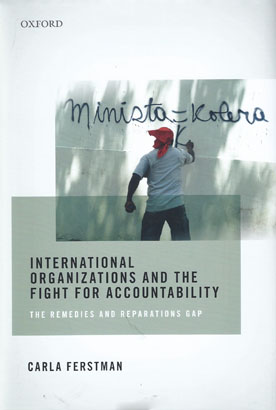
Increasingly, international organizations take on State- or quasi- State-like functions in which they exercise control over individuals and societies, particularly in contexts of conflict and transition. These all increase the risks that their conduct may infringe human rights and international humanitarian law. International organizations' engagement in peace operations has progressively widened, with mandates now regularly including the protection of civilian populations and in several new operations containing peace enforcement responsibilities with active combat duties.
The book assesses whether and if so how human rights and international humanitarian law principles relating to accountability and reparation apply to international organizations. When considering whether international organizations are obliged to afford reparation and to whom it is owed and what it entails, one is confronted with how the law of responsibility intersects with the specialised regimes of human rights and international humanitarian law and particularly, their application to individuals. The rationales for organizational immunities and other limits on international organizations' responsibilities were conceived to ensure their independence from State influences and their capacity to engage in often difficult circumstances. Many, if not all of these rationales remain relevant today.